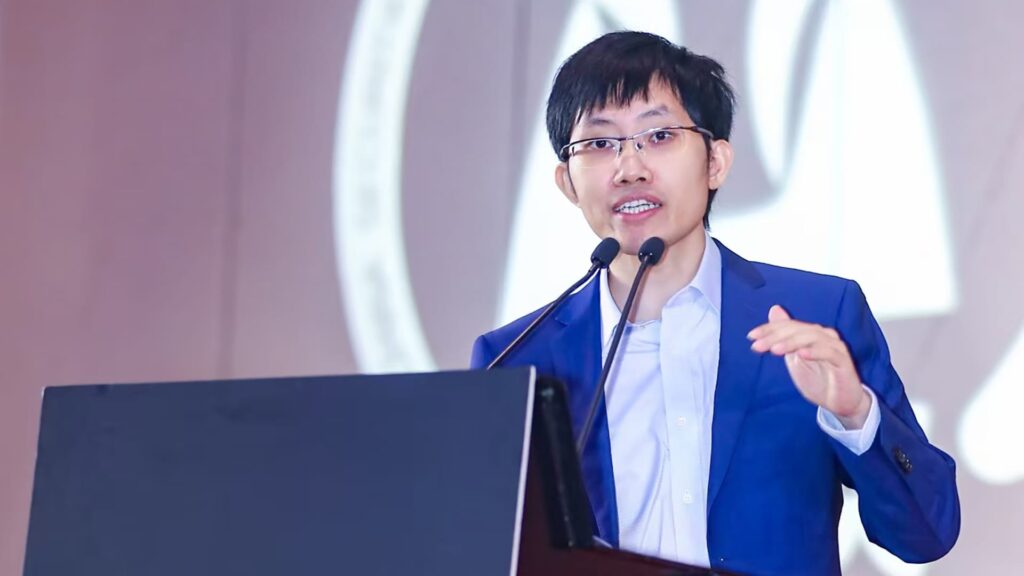DeepSeek offices in Beijing on Jan. 28, 2025.
Peter Catterall | Afp | Getty Images
Artificial intelligence startup DeepSeek has rocketed into global prominence, shaking up the AI world, but the team behind it is relatively unknown outside China.
DeepSeek’s founder, Liang Wenfeng, has been dubbed by some in Western media as China’s Sam Altman. But unlike his Silicon Valley counterpart, Liang has maintained a low public profile.
Liang’s team, comprising young graduates from some of the country’s leading universities, is also little known. The team consists of fewer than 140 people, according to Chinese state media, though a research paper on its latest R1 reasoning model lists about 200 contributors. CNBC has been unable to confirm the official size of the team.
Outside of its core technology developers, DeepSeek has mostly shared the senior management team, operation staff, human resources and financial accountants of its mothership High-Flyer, according to sources familiar with the company.
Here’s an overview of the people behind the AI sensation and how the startup came into being.
Liang Wenfeng
Liang has received the lion’s share of media attention in recent weeks as DeepSeek’s chatbot ascended to the top of global app charts.
Last month, he reportedly received a hero’s welcome in his hometown of China and was spotted at a roundtable hosted by Chinese Premier Li Qiang, and most recently at a closed-door symposium chaired by President Xi Jinping earlier this week.
The 40-year-old founder of DeepSeek has been quite media-shy, apart from two rare interviews with Chinese media outlet 36Kr in July last year and in 2023.
The interviews paint a picture of an idealistic leader set on achieving artificial general intelligence (AGI) — a type of AI that mimics human capabilities — and transforming China into a technology innovator.
Born in 1985, Liang grew up in Zhanjiang, a port city and trade center in southern China. He was a straight-A student who was particularly gifted in mathematics, according to local media reports.
Liang Wenfeng, founder of startup DeepSeek, delivers the keynote speech during the 10th China Private Equity Golden Bull Awards on Aug. 30, 2019, in Shanghai.
Vcg | Visual China Group | Getty Images
High-flying fund manager
In 2015, Liang and college friend Jin Xu founded High-Flyer Asset Management, a quantitative hedge fund that uses complex mathematical algorithms to predict market trends and make investment decisions.
Xu was a graduate from Zhejiang University’s Chu Kochen Honors College, which selects top students at the elite university.
There, Xu focused his PhD studies on robot autonomous navigation and machine learning — similar to Liang’s focus of postdoctoral research — and was a key member of the visual navigation research project for China’s lunar exploration program.
Xu, who once worked at Huawei Technologies’ software development in the early 2010s, now leads High-Flyer’s technology development and crafts trading strategies, his profile page on private equity database PaiPaiWang showed.
Zhengzhe Lu, the chief executive officer of High-Flyer, graduated from the same university as Liang and Xu, before earning a master’s degree from the London School of Economics and Politics.
Prior to High-Flyer, Lu worked at the state-backed China Merchants Bank, where he was engaged with macro research and overseas derivative investment.
In an interview with Chinese state media in 2023, Lu said: “We have set up a new team independent of investment, what is equivalent to a second start-up” — which later grew to become DeepSeek. “We want to do things with greater value and things that go beyond investment industry.”
The pair manage some of the best performing funds under the company’s portfolios, with averaged returns over 20% in 2024, according to PaiPaiWang. That was above gains of about 15% in the CSI 300 index last year, a 5% rise in the small-cap CSI 500.
The quant fund’s profits were partially channeled to fund the rise of DeepSeek, Liang told 36 Kr in 2023.
Brains behind DeepSeek
In 2023, High-Flyer spun off DeepSeek as an independent enterprise, expanding its remit beyond investment and focusing on pursuing AGI.
The team consists mostly of local engineering, computer science and AI graduates from top universities in China — such as Tsinghua University and Peking University — many of whom have published recent papers on subjects such as language models and machine learning.
A number of team members are also graduates from top American universities with experience at Nvidia and Microsoft who decided to return to China’s growing AI industry, according to their LinkedIn profiles.
A key attribute that sets the team apart is age, as DeepSeek favors graduates with less work experience.
Instead, “they emphasize academic degrees, awards at international programming competitions, research papers published at top industry journals,” a headhunter for DeepSeek told CNBC.
In the interview in 2023, Liang said experience is less important in the long run and “foundational abilities, creativity, and passion are more crucial.”
In 2024, he said that while the top 50 talent in AI may not have been in China, DeepSeek was aiming to cultivate its own.
Top graduates also appear to be attracted to the firm because of its reportedly higher salaries and greater degree of bottom-up management than might be found at a larger tech firm.
Zihan Wang, a former DeepSeek employee who spoke to the MIT Technology Review in January, said he was given abundant computing resources and freedom to experiment at DeepSeek.







